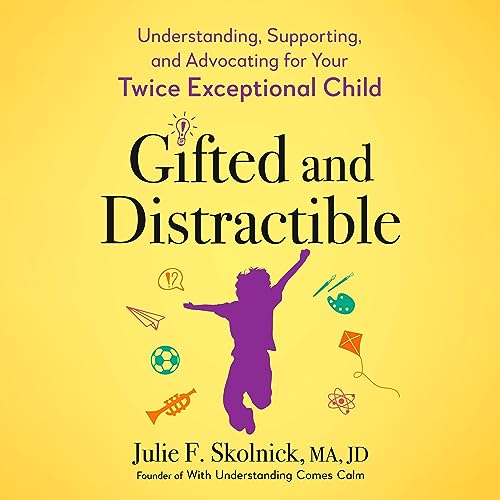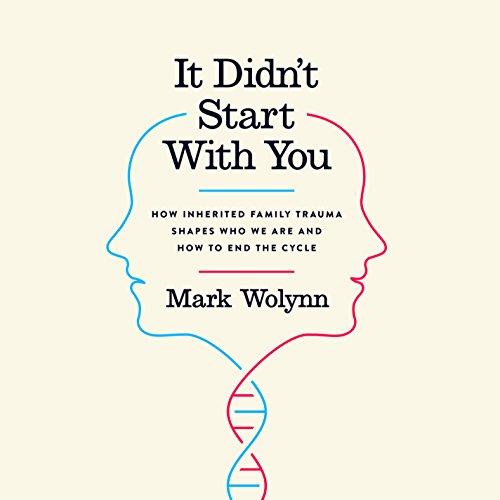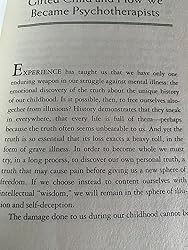
 Audible sample
Audible sample  Playing...
Playing... 
 Paused
Paused  Your audiobook is waiting!
Your audiobook is waiting!
Enjoy a free trial on us
$0.00$0.00
- Click above for unlimited listening to select audiobooks, Audible Originals, and podcasts.
- One credit a month to pick any title from our entire premium selection — yours to keep (you'll use your first credit now).
- You will get an email reminder before your trial ends.
- $14.95$14.95 a month after 30 days. Cancel online anytime.
Buy
-12% $11.80$11.80
The Drama of the Gifted Child: The Search for the True Self
 Audible Audiobook
– Unabridged
Audible Audiobook
– Unabridged
This best-selling book examines childhood trauma and the enduring effects it has on an individual's management of repressed anger and pain.
Why are many of the most successful people plagued by feelings of emptiness and alienation? This wise and profound book has provided millions of people with an answer—and has helped them to apply it to their own lives.
Far too many of us had to learn as children to hide our own feelings, needs, and memories skillfully in order to meet our parents' expectations and win their "love". Alice Miller writes, "When I used the word 'gifted' in the title, I had in mind neither children who receive high grades in school nor children talented in a special way. I simply meant all of us who have survived an abusive childhood thanks to an ability to adapt even to unspeakable cruelty by becoming numb.... Without this 'gift' offered us by nature, we would not have survived."
But merely surviving is not enough. The Drama of the Gifted Child helps us to reclaim our life by discovering our own crucial needs and our own truth.
- Listening Length3 hours and 51 minutes
- Audible release dateSeptember 25, 2018
- LanguageEnglish
- ASINB07H396P4V
- VersionUnabridged
- Program TypeAudiobook
 Read & Listen
Read & Listen
Get the Audible audiobook for the reduced price of $12.99 after you buy the Kindle book.
People who viewed this also viewed
- Audible Audiobook
- Audible Audiobook
- Audible Audiobook
- Living with Intensity: Understanding the Sensitivity, Excitability, and the Emotional Development of Gifted Children, Adolescents, and Adults
 Audible Audiobook
Audible Audiobook - Audible Audiobook
People who bought this also bought
- Audible Audiobook
- Audible Audiobook
- Audible Audiobook
- Audible Audiobook
- Audible Audiobook
Related to this topic
- Audible Audiobook
- Audible Audiobook
- Audible Audiobook
- Audible Audiobook
- Audible Audiobook
Product details
| Listening Length | 3 hours and 51 minutes |
|---|---|
| Author | Alice Miller |
| Narrator | Suzanne Toren |
| Whispersync for Voice | Ready |
| Audible.com Release Date | September 25, 2018 |
| Publisher | Hachette Audio |
| Program Type | Audiobook |
| Version | Unabridged |
| Language | English |
| ASIN | B07H396P4V |
| Best Sellers Rank | #5,972 in Audible Books & Originals (See Top 100 in Audible Books & Originals) #6 in Child Psychiatry #8 in Parenting Teenagers (Audible Books & Originals) #13 in Abuse Self-Help |
Customer reviews
Customer Reviews, including Product Star Ratings help customers to learn more about the product and decide whether it is the right product for them.
To calculate the overall star rating and percentage breakdown by star, we don’t use a simple average. Instead, our system considers things like how recent a review is and if the reviewer bought the item on Amazon. It also analyzed reviews to verify trustworthiness.
Learn more how customers reviews work on AmazonReviews with images
-
Top reviews
Top reviews from the United States
There was a problem filtering reviews right now. Please try again later.
and this is how i felt (and still feel) after having read it (just finished it at 2 am this morning).
the premise of the book is that what we are not aware of, rules (destroys) our lives.
the trauma of being mistreated, manipulated, ridiculed or just ignored in the first days / years of our lives by adults we depended on for our existence gets stored in our bodies and it conditions us not only to neurosis, but also to taking it out on the first available weaker person -usually our children.
it also claims that thanks to the way we are brought up and "loved" by our (own screwed up and wounded) caretakers conditionally, for what we do and how we behave and not for who we are (for the fact we exist), we tend to deny parts of ourselves that the caretakers wish to expunge. we mould ourselves according to what we think they want, and lose ourselves in the process.
as adults, we keep carrying the feeling of inadeqacy and unworthiness and experience it as depression or grandiosity (in which no achievement really is enough for us to start valuing ourselves so we keep pushing for more, just to keep the depression and worthlessness at bay).
some children, on the other hand, "kill" their own emotions and feelings, in order to keep their caretaker's love.
in all cases children take the "blame and shame" for their "inadequacies" and idealize the parents or caretakers who inflicted the wounds.
at times, reading this book, i would remember the fact that i too remember nothing of my childhood, except that it was "idilic". or was it? repression of memories and feelings can go straight into almost complete amnesia.
i also thought of a few people i know, whose parents are strict and cold, who display very little emotion, but go thru life sucking love out of other people only to discard them when they get it.
i would remember how i sometimes lash out at my son, like his being a child is a crime.. the same way i was loved for my achievements, i sometimes get demanding on him and show discontent when he does not comply.
i thought of my son's difficult birth and 6 days in ER, without me, all alone. and i want to scream :(
this book hit me like a hammer.
i hope i read it on time. everyone should do the same, if not for their own sake, then for sake of their innocent children.
oh, and one more thing: sentences are so damn long and sometimes barely comprehensible. the translation could have been done more in the spirit of english language.
Miller offers an extraordinarily stark, radical, and uncompromising narrative of generational trauma. Here's the core argument: the patient in infancy is conditioned into hiding her emotional needs by an insecure mother. She experiences contempt for her frailty. These experiences are repressed into the subconscious. They manifest later in life as mental illness, aberrant habits, and/or trouble with relationships. When the patient becomes a parent, she finally finds in her own child someone who can offer the unconditional love she needed from her mother in infancy. But the cycle perpetuates when the patient's child has inconvenient childlike needs that bring the patient's repressed memories too close to the surface. Experiencing, in therapy and at an emotional and not intellectual level, the pain of her mother's contempt brings out a cathartic mourning that can break the cycle.
There are examples and they change. Sons and (to a lesser extent) fathers make appearances. Beyond that, this is pretty much the whole book.
The brittle consistency Miller brings to this central dogma makes this volume stunningly repetitive given its brevity. It also makes the book less useful than it could be: given the black and white view of imperfect parenting as "original sin," it offers little guidance, for example, on how to be a better while imperfect parent. Either you go to therapy and experience an essential mourning of your childhood, or you're doomed. It offers little guidance that mental illnesses like depression could have parallel sources or parallel treatments. And it offers little guidance for how to navigate the other traumas in life that have nothing directly to do with parenting.
Reaching into Alice Miller's history offers clues. And this is where things get really meta: the initial intrigue is to ask why this book by an author with such an Anglo sounding name was translated from the German. One goes to Wikipedia to learn that Alice Miller was a Polish Jew who survived the Holocaust without her whole family making it, the gyrations of her very name bearing witness to a cross-border struggle to survive. She repressed her war trauma, minimized her own therapy, kept her life history intensely private, and hurt her own son Martin grievously. Back to Amazon, Martin, also a therapist, recently wrote _The True Drama of the Gifted Child_ to tell us all about it. And thus the whole project of Alice Miller's career - of an emotional processing of trauma in therapy triumphing over intellectualized defense mechanisms - falls into context as an intellectualized defense mechanism. At the end of the book, Miller connects her theory of generational trauma to the horrors of fascism. Having learned Miller's life history makes this capstone to the book hard to un-see.
This book is so powerful and potentially life-changing that I think it remains essential. Yet learning its context gives me reservations and says something enigmatic about humanity that I just can't quite cast aside.























